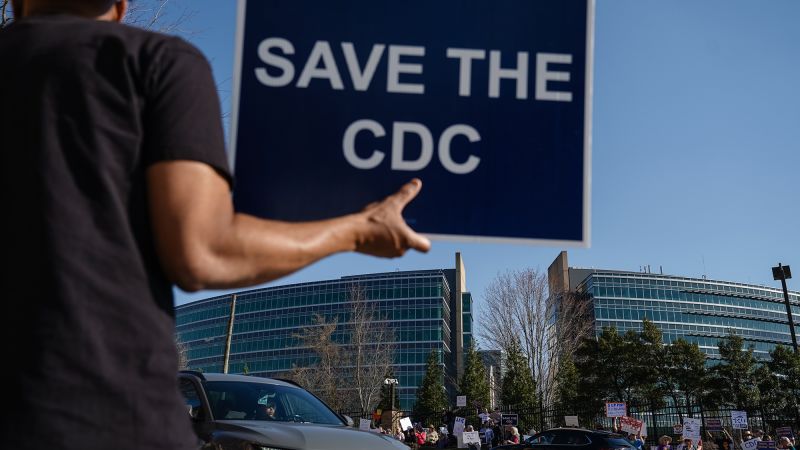HHS cuts 10,000 employees in major overhaul of health agencies - CNN
7 days ago

The US Department of Health and Human Services (HHS) made headlines on Thursday with the announcement of a significant reduction in its workforce, planning to cut 10,000 full-time employees across various health agencies. This decision has raised concerns about the future of public health initiatives and the operational capacity of these agencies, especially in the wake of ongoing health challenges. The HHS, which oversees critical components of the nation's health system including the Centers for Disease Control and Prevention (CDC), the National Institutes of Health (NIH), and the Food and Drug Administration (FDA), is facing increased scrutiny as it navigates this substantial downsizing. This move is seen as part of broader efforts to streamline government operations, particularly in the wake of budget constraints and shifting priorities within the federal government. The announcement comes on the heels of a previous reduction in personnel, where the department had already let go of 10,000 employees. This cumulative loss of 20,000 positions raises questions about the capacity of HHS to effectively manage ongoing and future health crises. Critics argue that such drastic cuts could hinder the government's ability to respond to public health emergencies, implement disease prevention strategies, and ensure compliance with health regulations. Furthermore, the health agencies have been on the front lines of the COVID-19 pandemic, and many fear that losing a significant portion of their workforce could weaken the public health infrastructure just as the nation is looking to rebuild and recover from the pandemic's impacts. The implications of these cuts extend beyond just the immediate workforce reduction; they also signal a potential shift in the federal government's commitment to public health funding and support. Health agencies have been grappling with the need for better resources to address rising health disparities, manage emerging infectious diseases, and promote preventive health measures. As the nation continues to face challenges such as mental health crises, opioid addiction, and chronic diseases, the timing of these cuts raises alarms among health professionals and advocates who believe that a robust public health workforce is essential for safeguarding the health of the population. The HHS's decision may hinder efforts to address these pressing health issues, particularly in underserved communities that rely heavily on federal programs and support. In light of these developments, stakeholders from various sectors, including healthcare professionals, policymakers, and public health advocates, are calling for a reevaluation of the department's priorities. They urge the administration to consider the long-term consequences of workforce reductions, particularly in a field where expertise and continuity are paramount. As the nation navigates the post-pandemic landscape, the importance of a well-resourced and adequately staffed public health sector cannot be overstated. The future of public health in the United States may depend on the ability of the HHS to not only maintain its current workforce but also to invest in building a resilient, responsive health infrastructure that can meet the needs of the population now and in the years to come.